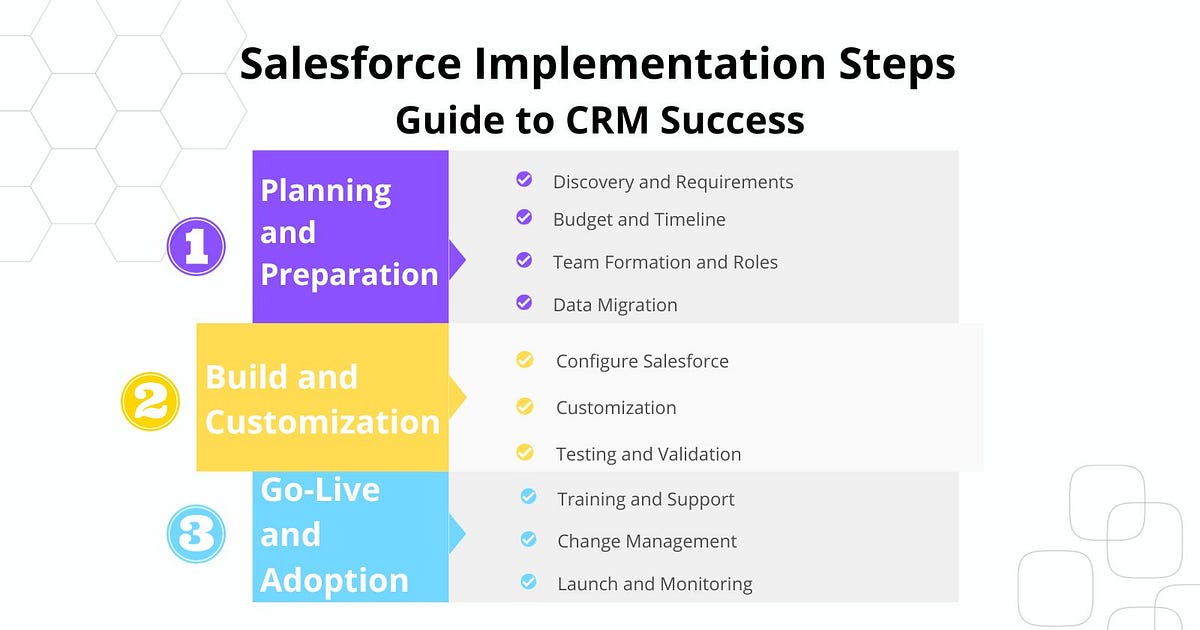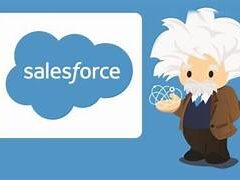Unlocking the Potential of Salesforce: A Guide to Corporate Success
Are you ready to explore the world of Successful Salesforce Implementation? In this Tectonic insight, we’ll explore how to leverage Salesforce to its fullest potential for your corporate success. Whether you’re a small startup or a large corporation, keep reading for practical advice and real-world insights to make Salesforce implementation work for you!
What is Salesforce?
Salesforce acts as a digital headquarters for organizations, organizing all client information, such as names, purchases, and contact methods. It’s also an Internet application that helps organizations manage customer relationships more effectively by sorting customer details, tracking sales leads, and automating tasks to ease customer interactions. Salesforce is cloudbased, so it is accessible from anywhere.
Why Implement Salesforce Now?
Implementing Salesforce offers numerous benefits for organizations across various industries:
- Scalability: Suitable for businesses of all sizes, Salesforce adjusts to fit your needs, whether you’re small or large.
- Centralized Data Management: Store all customer information in one place, enabling better collaboration and faster decision-making.
- Automation and Workflow Optimization: Automate tasks to save time, maintain consistency, and reduce errors.
- Integration Capabilities: Seamlessly integrate with many third-party apps and systems for a smooth workflow.
- Mobile Accessibility: Access key customer information and collaborate with team members on the go, boosting productivity and responsiveness.
- Innovation and Updates: Stay ahead with the latest CRM technology updates and features.
Overall, Salesforce improves how organizations manage customer relationships and utilize data for growth, but effective implementation requires thoughtful planning and customization.
Types of Salesforce Implementation
Sales Cloud Implementation
Sales Cloud is Salesforce’s CRM platform designed to manage sales, leads, and customer interactions.
- Pros: Streamlines sales processes, enhances salesperson performance, and allows customization to fit specific needs.
- Cons: Can be complex for organizations with unique sales processes or legacy systems, requires training, and involves costs like licensing fees.
Service Cloud Implementation
Service Cloud helps companies provide excellent customer service and support.
- Pros: Supports multiple channels, offers strong case management, and enables the creation of a knowledge base.
- Cons: Difficult integration with complex IT setups, potential longer response times with increased inquiries, and requires training.
Marketing Cloud Implementation
Marketing Cloud Engagement simplifies marketing efforts, helping businesses connect with customers across various channels.
- Pros: Enables personalized campaigns, ensures consistent messaging, and offers strong analytics and reporting.
- Cons: Complexity with many data sources, high costs including licensing and maintenance, and challenging integration.
Each type of Salesforce implementation offers unique benefits and challenges, depending on the organization’s needs and goals.
CRM Implementation Considerations
Implementing a CRM system is a significant move for any business. Here are important things to remember:
- Define Objectives: Identify why you need a CRM to set up goals correctly.
- Choose the Right CRM: Ensure it aligns with your business goals and needs.
- Data Management: Ensure data is clean, accurate, and relevant.
- Integration: Smooth integration with existing systems is crucial.
- Compliance: Secure customer data and comply with regulations.
- Feedback: Continuously seek user feedback for improvements.
- Executive Support: Ensure commitment from top management.
Step-by-Step Guide to Implement Salesforce Successfully
- Objective and Goal Definition: Clearly define the objectives and goals, aligning them with business strategy.
- Project Team Formation: Assemble a diverse team with clear roles and strong executive support.
- Salesforce Edition Selection: Choose the edition that fits your needs, considering features, scalability, and budget.
- Map Business Processes: Understand and map current business processes to design efficient Salesforce solutions.
- Customization: Tailor Salesforce to match your business operations and integrate smoothly with other systems.
- Data Migration: Clean and transfer data accurately, ensuring a seamless transition.
- Change Management: Implement effective change strategies for smooth adoption.
- Integration with Third-Party Systems: Ensure smooth data flow and integration with other business systems.
- Testing and Quality Assurance: Conduct thorough testing to ensure the platform meets business needs.
- Go Live and Deployment: Deploy Salesforce organization-wide with ongoing support and monitoring.
Benefits of a Successful Salesforce Implementation
- Improved CRM: Centralizes customer information, enhancing understanding and satisfaction.
- Effective Marketing Campaigns: Facilitates targeted and personalized campaigns.
- Improved Collaboration: Enhances team communication and coordination.
- Customization: Adapts to unique business needs, supporting growth and innovation.
- Data-Driven Insights: Provides analytics for informed decision-making.
- Enhanced Customer Service: Automates processes for faster issue resolution.
Conclusion
Implementing Salesforce is more than adding a powerful CRM system; it’s a journey to greater efficiency, productivity, and customer satisfaction. By thoughtfully planning and customizing Salesforce, organizations can enhance operations, deepen customer relationships, and drive sustainable growth. Embrace the possibilities of Salesforce implementation to chart a course for lasting success and innovation in the modern business landscape.













